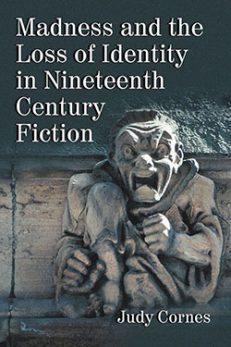Madness and the Loss of Identity in Nineteenth Century Fiction
$49.95
In stock
About the Book
An obsession with individual identity pervaded Western thinking in the nineteenth and early twentieth centuries. This critical study examines the concept of identity in the works of nineteenth century American and British authors, focusing especially on psychologically mad, vague, shifting and dualistic characterization. Authors examined include Ambrose Bierce, Henry James, Wilkie Collins, Robert Louis Stevenson, Charles Chesnutt, Lillie Devereux Blake, and Mary Elizabeth Braddon. The text discusses how each author was influenced by contemporary events (such as the American Civil War, slavery, the Second Great Awakening, and the beginnings of modern psychology), how those experiences shaped contemporary intellectual thought regarding identity, and how the resulting concern with personal identity was manifested in literary characters who were either in search of or running from themselves.
About the Author(s)
Bibliographic Details
Judy Cornes
Format: softcover (6 x 9)
Pages: 224
Bibliographic Info: notes, bibliography, index
Copyright Date: 2008
pISBN: 978-0-7864-3224-0
eISBN: 978-1-4766-1263-8
Imprint: McFarland
Table of Contents
Preface 1
Introduction 5
1. The Nightmare World of Ambrose Bierce 21
2. Henry James and the Examined Life 55
3. Wilkie Collins and Social Constraints 73
4. The Strange Cases of Robert Louis Stevenson 116
5. Charles Chesnutt and the Despair of Blackness 144
6. Lillie Devereux Blake and the Perilous Web of Sex 161
7. The Secret Life of Lady Audley 183
Chapter Notes 203
Bibliography 209
Index 213





